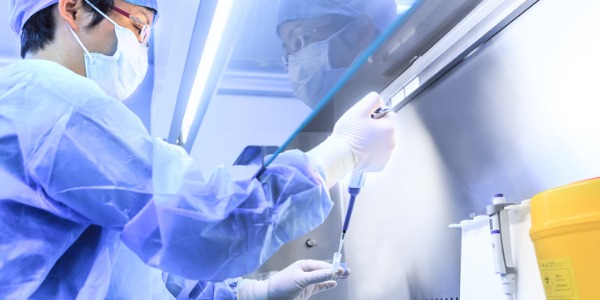What is a Microbiologist?
A microbiologist is someone who studies the growth, development, and characteristics of microscopic organisms such as bacteria, algae, and fungi. They work in laboratories and offices, where they conduct scientific experiments and analyze the results.
What does a Microbiologist do?

Microbiologists typically do the following:
- Plan and conduct complex research projects, such as developing new drugs to combat infectious diseases
- Supervise the work of biological technicians and other workers and evaluate the accuracy of their results
- Isolate and maintain cultures of bacteria or other microorganisms for future study
- Identify and classify microorganisms found in specimens collected from humans, water, food, and other sources
- Monitor the effect of microorganisms on plants, animals, and other microorganisms and on the environment
- Keep up with findings from other research groups by reading research reports and attending conferences
- Prepare technical reports, research papers, and recommendations based on their research findings
- Present research findings to scientists, non-scientist executives, engineers, other colleagues, and the public
Most microbiologists work in research and development. Many conduct basic research with the aim of increasing scientific knowledge. Others conduct applied research, using knowledge from basic research to develop new products or solve particular problems. For example, microbiologists help to develop genetically engineered crops, biofuels, and ways to protect the environment.
Microbiologists use computers and a wide variety of sophisticated laboratory instruments to do their experiments and analyze the results. For example, they use powerful electron microscopes to study bacteria. They use advanced computer software to analyze the growth of microorganisms found in samples.
An increasing number of scientific research projects involve multiple disciplines, and it is common for microbiologists to work on teams with technicians and scientists in other fields. For example, microbiologists researching new drugs may work with medical scientists and biochemists to develop new medicines such as antibiotics and vaccines. As another example, microbiologists in medical diagnostic laboratories work alongside physicians, nurses, medical laboratory technologists and technicians and other health professionals to help prevent, treat, and cure diseases.
What is the workplace of a Microbiologist like?
Microbiologists typically work in laboratories and offices, where they conduct experiments and analyze results. Those who work with dangerous organisms must follow strict safety procedures to avoid contamination. Most microbiologists work full time and keep regular hours.
Basic researchers usually choose the focus of their research. Applied researchers who work for companies spend more time working on products that the company can sell. They are often under pressure to meet deadlines and follow specifications for grants to fund their research. They may face competition for research grants.
Microbiologists are also known as:
Microbiological Analyst
Clinical Microbiologist